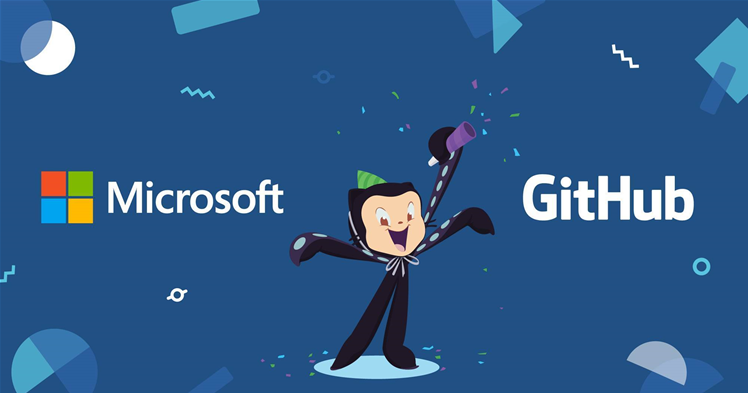Microsoft will pay US$7.5 billion ($9.8 billion) for the open source code repository Github, immediately offering reassurances the service will “remain an open platform for all developers”.

The massive all-stock deal had been heavily rumoured over the weekend and into Monday, spooking some coders into finding new homes for their source code elsewhere.
The prospect of a user exodus may have sparked the two firms to disclose the deal early, in part to preserve the value of the acquisition.
The purchase is expected to close this financial year.
Both Microsoft and Github issued separate assurances that the platform would retain its utility under Microsoft ownership.
“Github will retain its developer-first ethos and will operate independently to provide an open platform for all developers in all industries,” Microsoft said in a statement.
“Developers will continue to be able to use the programming languages, tools and operating systems of their choice for their projects - and will still be able to deploy their code to any operating system, any cloud and any device.”
“We both believe Github needs to remain an open platform for all developers,” the code repository service said in a blog post.
However, some - like Fog Creek Software CEO Anil Dash - are hoping the buyout causes developers to really consider long-term options for how they collaborate on code projects.
"Microsoft buying Github is likely to be good news for developers. There’s no better evidence of how Microsoft has been revitalised under the leadership of Satya Nadella than to point to bold moves like this, which would have seemed incredible (and also not seemed credible!) in the past," Dash said in a Medium post.
"But if we have a concern, it’s that there hasn’t been a huge leap forward in social coding in the last decade.
"Since every developer will be thinking about big ideas right now ... and a lot of people will (understandably) be thinking about backing up their Github projects just in case, we think you should use that opportunity to ... consider if it’s time to rethink traditional views on version control entirely."
Gitlab, which runs a rival code repository service, said it expected Microsoft to commercialise Github by creating tight integrations with Azure and its developer tools.
"Github has earned mindshare within the developer community, and Microsoft’s acquisition is certainly an attempt to garner and cultivate that mindshare," Gitlab said.
"However, the long term strategic implication seems to be that Microsoft wants to use Github as a means to drive Azure adoption.
"Developer tools have a high capacity for driving cloud usage. Once you have your application code hosted, the natural next step is to need a place to deploy it.
"Today, Microsoft fosters cloud adoption by tightly coupling Azure, together with Microsoft Visual Studio Team Services (VSTS). Microsoft will likely integrate Github into VSTS in order to take advantage of the strong tie with Azure."
New Github chief
Microsoft’s corporate vice president of developer services, Nat Friedman, will assume the role of Github CEO, ending a long-running but ultimately fruitless search for a leader.
"Nat has a ton of experience with software and the open source software community, having co-founded Xamarin and worked on numerous open source projects over the years, and is the perfect person to help Github grow and continue to make life better for developers,” Github said.
Friedman's appointment was well-received. Patrick Collison, CEO of payments gateway Stripe, tweeted that Friedman becoming CEO was "as important as the acquisition itself".
"Nat is one of the most impressive leaders in tech and Github is lucky to get him. Good news for open source community," Collison said.
Microsoft said it would report Github's financials as part of the Intelligent Cloud segment of its business.
Github's true value
Peter Levine, general partner at the venture capital firm Andreessen Horowitz, said today's buyout of Github vindicated his firm's "eye-popping" US$100m investment into the code repository six years ago.
"This was not only a Series A investment and the first institutional money ever raised by the company, but it was also the largest single cheque we had ever written," Levine said.
"We’d expected there to be quite a bit of criticism, and while a few made some good arguments, we simply had a different opinion.
"Where they saw us 'overpaying', we saw a once-in-a-decade company. Software was eating the world, and it was being built on Github."
Recode reported the US$100 million stake would have earned the VC around US$1 billion courtesy of Microsoft's buyout.
Software developer and author Eric Sink noted that while "many people seem to be unhappy about Microsoft's acquisition of Github, the most common sentiment I see is a preference for GitHub to remain "neutral" - but the status quo was not one of the available options."
"A long-term independent Github became unlikely in July 2012 when they got a US$100m investment," Sink said, noting the service went on to attract other VC money.
"Github has been very successful. Perhaps too successful. So many organisations and open source projects depend on Github that its failure would be an industry disaster.
"Somebody had to acquire Github. There was no other alternative."
Still, fears that a Microsoft-owned Github would compromise the platform's "neutrality" lingered, fuelling talk of developers turning their backs on Github in favour of other similar services.
"The reason Github has earned trust and respect is that it was a neutral broker; it had no other interests than good service," said Smári McCarthy, an Icelandic politician representing the Pirate Party.
"Microsoft has vast interests all over, and businesses will be loathe to implicitly give Microsoft access to their sensitive, private codebases."



_(33).jpg&h=140&w=231&c=1&s=0)
.png&h=140&w=231&c=1&s=0)
_(28).jpg&h=140&w=231&c=1&s=0)





 iTnews Executive Retreat - Security Leaders Edition
iTnews Executive Retreat - Security Leaders Edition
 iTnews Benchmark Awards 2026
iTnews Benchmark Awards 2026
 iTnews Cloud Covered Breakfast Summit
iTnews Cloud Covered Breakfast Summit
 The 2026 iAwards
The 2026 iAwards












_(1).jpg&h=140&w=231&c=1&s=0)



